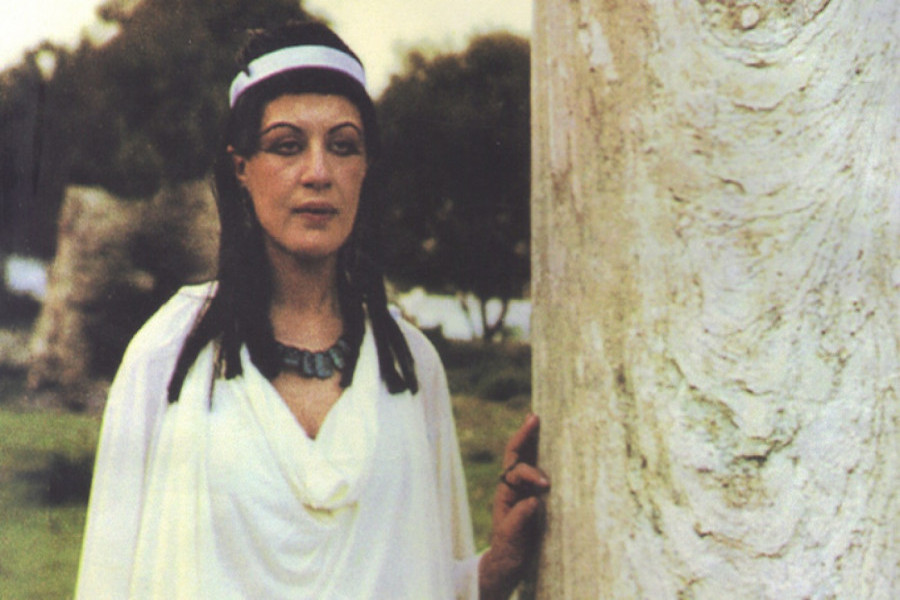Block Museum offers a feminist perspective to Arab histories through film series
Film still from “Fatma 75.”
October 28, 2020
The Block Museum of Art hosted “Liberating History: Arab Feminisms and Mediated Pasts” to celebrate Arab women’s filmmaking and present a feminist perspective to past Arab histories.
The online event includes five screenings from Oct. 8 to Oct. 31 that can be accessed for 24 hours following the screening, and the films range from “Fatma 75,” a Tunisian feminist essay film released in 1975, to “Leila and the Wolves,” which centers on women’s overlooked political and social contributions.
“It’s an intervention on mainstream historical narratives that have often been patriarchal and colonial,” said Block Museum Associate Film Programmer Malia Haines-Stewart, one of the curators of the event.
Haines-Stewart said the series was originally planned to screen in the museum auditorium, but the screenings were moved online due to COVID-19. However, thanks to the virtual platform, certain films reached audiences in over 40 countries around the world, and at times, the number of people watching surpassed the number of seats in the auditorium, she said.
She added the event hopes to promote greater understanding and deeper conversation about Arab cinema. The museum is also commissioning short essays on several films in the series, in order to facilitate more English language discussions about the films, Haines-Stewart said.
“We really wanted to provide a context for people to come together around these films that are under-seen and… develop further discourse in English language about Arab feminism and cinema,” Haines-Stewart said.
Block Museum of Art 2019-2020 interdisciplinary graduate fellow and co-curator Simran Bhalla said the films drew on archives to tell new versions of Arab histories.
“These films are such important historical objects and make such fascinating arguments about both the place of women in cinema as well as history going back the entire 20th century,” Bhalla said. “And these stories haven’t really been told to a wide audience.”
“Fatma 75” is the first non-fiction film produced by a Tunisian woman. The film, which was screened at the museum on Oct. 22, tells the story of Fatma, a female university student, to illustrate how histories of Tunisian independence and women’s emancipation are intertwined.
Northwestern Ph.D. candidate in the political science department Issrar Chamekh was one of the speakers at the “Fatma 75” screening and said the film followed Fatma as she did research on the history of women’s rights in Tunisia for a class presentation.
“It’s a commentary about women’s rights, but it’s also a commentary on a national narrative of women’s rights being handed down from male politicians,” Chamekh said. “(Fatma) does acknowledge the help that male politicians and thinkers have given to the movement, but she rejects the idea of women’s right as a gift.”
Chamekh said the film was banned in Tunisia when she was younger, but she wished she had been able to see this movie growing up, because the film showed influential female figures within Tunisia fighting for their rights.
She added it would be powerful for a teenager to be reminded that human rights issues like women’s rights are driven by movements that are anchored in local and regional contexts. The movie reminds viewers that the feminist movement in Tunisia is not a Western import but rather has deep roots in the country’s own history.
“It’s been personally really exciting to see how politically committed and artistically innovative these filmmakers have been since the beginning of their ability to make films in their countries,” Haines-Stewart said.
Email: [email protected]
Twitter: @RaynaYu_Song
Related Stories:
— Artist-in-residence and professor “memorialize” Toni Morrison and Audre Lorde in dialogue
— “Modernisms” displays the rich culture of Asian and Middle Eastern modernist art


